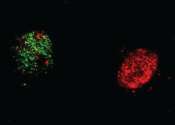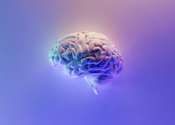Last update:
Neuroscience news
Medical research
New high-resolution 3D maps show how the brain's blood vessels change with age
Healthy blood vessels matter for more than just heart health. Vascular well-being is critical for brain health and potentially in addressing age-related cognitive decline and neurodegenerative disorders, like Alzheimer's ...
6 hours ago
0
38
Neuroscience
New work focuses on lack of TIMP-1 expression in the brains of MS patients
with a close family member living with multiple sclerosis Stephen J. Crocker, Ph.D., associate professor of neuroscience and immunology at UConn School of Medicine, takes his research personally.
6 hours ago
0
36
Study finds genetic variant among people who experience a rare recovery from ALS
Though it is exceedingly rare, some people diagnosed with amyotrophic lateral sclerosis (ALS) partially or fully recover from the lethal neurodegenerative disease.
6 hours ago
0
0

Bilateral focused ultrasound shown to be safe, effective for patients with lingering or severe essential tremor
In a study published in JAMA Neurology co-authored by Vibhor Krishna, MD, associate professor of neurosurgery at the UNC School of Medicine, researchers found that a staged bilateral focused ultrasound treatment for essential ...
12 hours ago
0
64

Neurons in the frontal cortex help macaque monkeys decode social interactions, study shows
By studying the brains of macaque monkeys during turn-taking exercises, researchers may be one step closer to understanding how individual neurons in the frontal cortex work together to analyze spatial locations of other ...
15 hours ago
0
12
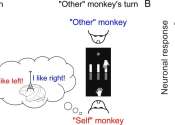
Just a Minute: Avoiding 'brain fry' key to success on popular Radio 4 gameshow
Comedian Paul Merton and a Cardiff University academic have investigated why Radio 4 program "Just a Minute" is so challenging for players.
15 hours ago
0
3

Spatial pattern of pathological changes in the brain can help identify dementia vulnerability early
Findings from a novel study in Biological Psychiatry: Cognitive Neuroscience and Neuroimaging, suggest that using a specialized diffusion weighted MRI scan to monitor the spatial pattern of individual cortical microstructural ...
10 hours ago
0
0

Brain cell grafts in monkeys jump-start human trial for new Parkinson's treatment
People with Parkinson's disease are receiving a new treatment in a clinical trial started after University of Wisconsin–Madison scientists demonstrated the safety and feasibility of the therapeutic delivery method in a ...
Jul 29, 2024
0
50
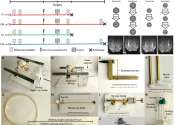
Advanced 'Parkinson's in a dish' model accelerates brain disease research
Researchers at Brigham and Women's Hospital, a founding member of the Mass General Brigham health care system, have developed a model that rapidly converts stem cells to brain cells with protein structures characteristic ...
Jul 29, 2024
0
19

Non-invasive device uses magnetoneurography to record involuntary nervous system
A research team led by UC San Diego has, for the first time, shown that a wearable, non-invasive device can measure activity in human cervical nerves in clinical settings.
Jul 29, 2024
0
38
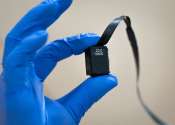
New research suggests deaf children interact with parents like their hearing peers
A new study led by a Keele University research team has found that deaf toddlers fitted with cochlear implants interact with their parents just as well as their hearing peers.
Jul 29, 2024
0
63

First-ever effective therapy for rare, devastating neurodegenerative mitochondrial diseases
A new treatment could improve the lives of patients with mitochondrial diseases called POLG-related disorders, according to a unique clinical trial led by the Research Institute of the McGill University Health Center (RI-MUHC). ...
Jul 29, 2024
0
3

Inflammatory activity of rheumatoid arthritis linked to specific cognitive impairments
The inflammatory activity in the body caused by rheumatoid arthritis is linked to specific cognitive impairments, finds a small comparative study, published in the open access journal RMD Open.
Jul 29, 2024
0
1

Teen alcohol exposure impairs behavioral flexibility and learning, shows persistent effects on brain chemistry
Rats with alcohol exposure in adolescence are less able as adults to adapt their behavior in changing circumstances, according to a study that highlights the possible brain mechanisms involved. The findings may help us better ...
Jul 29, 2024
0
1

ECT-induced seizure length tied to major depressive disorder remission
For patients with major depressive disorder (MDD), seizure duration of 60 to 69 seconds induced by electroconvulsive therapy (ECT) is associated with the highest remission rates compared with seizure duration of less than ...
Jul 29, 2024
0
1

Video: The neuroscience of fencing
To make it to the Olympics, elite athletes spend countless hours preparing not only their bodies—but their brains, as well.
Jul 29, 2024
0
54

Central nervous system-associated macrophages could modulate post-stroke immune responses
An ischemic stroke is a type of stroke that occurs when a blood clot in an artery, also known as thrombus, or the progressive narrowing of arteries, blocks the blood and oxygen flowing to the brain. This process can cause ...

Building bridges between cells for brain health: Research finds microglia rescue neurons through tunneling nanotubes
The brain contains many cell types, from the prominent neurons to the lesser-known microglia. The latter are integral to the brain's immune system and play a crucial role as the brain's cleanup crew. A recent study conducted ...
Jul 26, 2024
0
78

'Prelude' to neuromuscular disease spinal muscular atrophy may offer chances for better treatment
Spinal muscular atrophy (SMA) is a severe neurological disease for which there is presently no cure, although current therapies can alleviate symptoms. In the search for better treatment options, scientists at DZNE and the ...
Jul 26, 2024
0
19

Mitochondria support immune response to central nervous system injuries, scientists discover
Northwestern Medicine scientists have discovered that mitochondria are not necessary for the proliferation of specialized immune cells in the central nervous system, but do help those cells respond to demyelinating injuries, ...
Jul 26, 2024
0
20

A new therapeutic target offers a promising pathway for multiple sclerosis treatment
Researchers from Kyushu University have identified a potential therapeutic target for the treatment of advanced multiple sclerosis (MS), a potentially disabling condition associated with the central nervous system.
Jul 26, 2024
0
7

Researchers find increased activity in part of the subthalamus during mouse mother/pup interactions
A combined team of physiologists and medical researchers from Yale University and Sorbonne Université, ICM, has found a part of the mouse brain that becomes more active when mothers and their pups interreact.
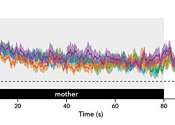
Does organizing your page help organize your mind?
If you have ever wondered how you manage to keep track of the immense amount of information coming to you each day, you might want to thank the positional tagging system in your mind.
Jul 26, 2024
0
46

What happens in the brain during a migraine? And what medications can be used to treat it?
Migraine is many things, but one thing it's not is "just a headache."
Jul 26, 2024
1
2

How epigenetics influence memory formation
When we form a new memory, the brain undergoes physical and functional changes known collectively as a "memory trace." A memory trace represents the specific patterns of activity and structural modifications of neurons that ...
Jul 25, 2024
0
178
